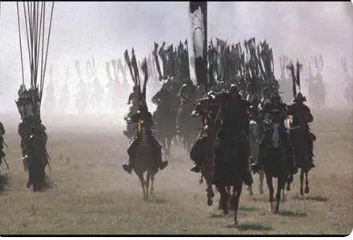During the Warring States period, wars among the vassal states were frequent, and the War of the Five States Against Qi was a significant one. However, in this war, Qi chose to sit back and watch the destruction of the five states, and the reasons behind this decision are worth further exploration.

Firstly, the post-war difficulties. After the Five States' invasion of Qi, although Qi ultimately emerged victorious, it paid a huge price. The war devastated Qi's economy, caused social disorder, and brought great hardships to the people. Under such circumstances, Qi needed to focus on domestic recovery and reconstruction, and was unable to participate in other wars.
Secondly, domestic political considerations. Qi faced a complex domestic political situation after the war. On the one hand, it needed to reform its political system, reorganize political order, and improve government efficiency and decision-making. On the other hand, it had to deal with internal power struggles and various social conflicts. Under such circumstances, Qi's rulers may have considered sitting back and watching the destruction of the five states as a safer option.
Thirdly, the depletion of military strength. Although Qi emerged victorious in the War of the Five States Against Qi, the war took a huge toll on its military strength. The army was exhausted, and equipment losses were severe. Under such circumstances, Qi may have been unable to launch large-scale military operations again and had to choose to sit back and watch the destruction of the five states.
Fourthly, the shift in diplomatic strategy. After the War of the Five States Against Qi, Qi began to adjust its diplomatic strategy. It actively established friendly relations with other countries, especially maintaining close ties with the powerful Qin state. This diplomatic strategy not only gave Qi valuable time for development but also partly contained the aggressive ambitions of other countries towards Qi. Therefore, against this diplomatic backdrop, Qi may have been more inclined to sit back and watch the destruction of the five states.
In conclusion, the reasons behind Qi's decision to sit back and watch the destruction of the five states mainly included post-war difficulties, domestic political considerations, the depletion of military strength, and shifts in diplomatic strategy. These factors combined to influence Qi's decision at that time. This historical experience provides us with an important case study on national decision-making and strategic choices, highlighting the close relationship between a country's fate and its domestic and foreign policies.
Disclaimer: The above content is sourced from the internet and the copyright belongs to the original author. If there is any infringement of your original copyright, please inform us and we will delete the relevant content as soon as possible.
































